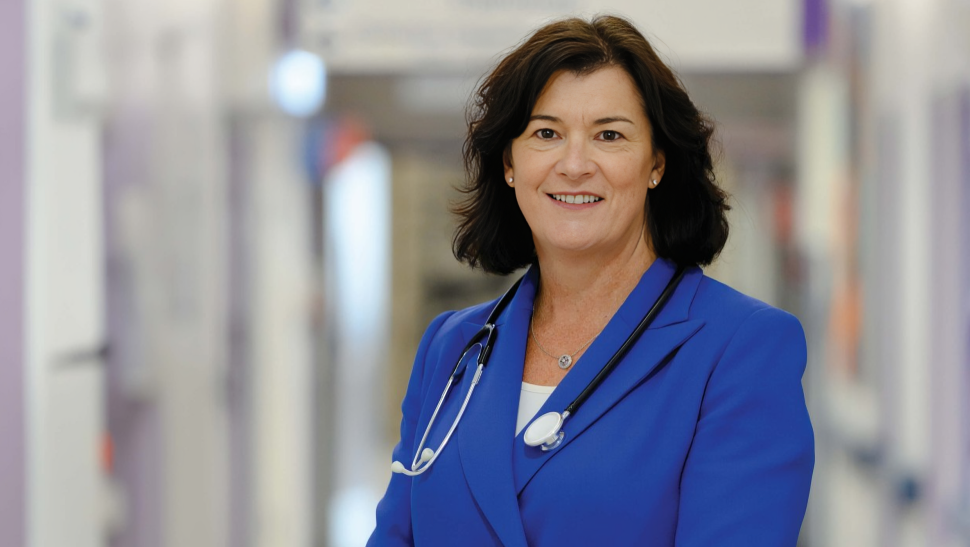Tracey O’Brien, NSW Chief Cancer Officer and CEO of the Cancer Institute NSW, shared a post on LinkedIn:
“Lung cancer, it’s a disease often synonymous with smoking, but the harsh reality is that many diagnosed with this deadly cancer have never smoked a single cigarette in their life.
As the fifth most commonly diagnosed cancer and the leading cause of cancer related death in men and women across NSW, lung cancer’s impact is profound. By year’s end, more than 4,600 people in NSW will be diagnosed and around 2,800 people will die from lung cancer. Its reach extends far beyond individuals, leaving families and communities grappling with its devastating toll.
Australia has led the way in public health campaigns, focusing on smoking-related lung cancer risks. Decades of policy, research, education and behaviour-change initiatives have yielded success. In fact, smoking rates in NSW have steadily declined over several decades and have remained stable for the last three years.
While there is still progress to be made, it is encouraging that lung cancer mortality rates have also decreased more than any other cancer type in NSW over the last 10 years – a trend likely influenced by various factors, including a reduction in male smoking rates and use of targeted and immune-based therapies.
The downside to this important work, is that lung cancer is so closely tied to smoking that there is a sense that people have brought it on themselves. For many living with lung cancer, this stigma adds an unnecessary and overwhelming burden to an already life-altering diagnosis.
As an oncologist, delivering a cancer diagnosis never gets easier. The often overwhelming sense of shock, fear and despair that people experience is unforgettable. Whether they have smoked or not, people with lung cancer often report that they feel like they have to start each conversation justifying their diagnosis, causing an added layer of pain and frustration no one should have to endure. Unfortunately, that is the reality for many people in our community.
Lung cancer in non-smokers, particularly among young women, is an emerging public health concern that is not well understood and demands attention. Research shows that women make up about two-thirds of lung cancer cases in those who have never smoked − that’s thousands of grandmothers, mothers, sisters and daughters who never thought it could happen to them.
Take the story of Victoria Taber, a non-smoker who at just 29 years of age was shocked to hear she had lung cancer. Stories like hers highlight the need to break down stigmas and stereotypes surrounding lung cancer. This is a global challenge that organisations like the Lung Foundation Australia, alongside the broader cancer community, are tackling head-on.
Victoria’s journey living beyond lung cancer.
Lung cancer research and treatment has advanced significantly, but prevention and early detection remain key to saving lives.
Smoking cessation: Smoking is an addiction that can be hard to break, but it remains the biggest cause of preventable disease and death in NSW. Supporting people to quit without blame or shame is vital.
Healthy living: Eating well, drinking less alcohol, and staying active can reduce the risk of lung and other cancers.
Recognising symptoms: Persistent coughs, difficulty breathing, coughing up blood or voice changes warrant are some of the more common symptoms of the disease. Any warrant a trip to your GP or local emergency department.
This Lung Cancer Awareness Month, our focus must remain on supporting those impacted by the disease while also educating communities and dispelling myths. Yes, smoking can increase your risk of lung cancer, but there should never be shame in a diagnosis.
Importantly, we must ensure that stigma or shame doesn’t deter people from getting symptoms checked or participating in the upcoming National Lung Cancer Screening Program, projected to save around 500 lives each year.
We have fought to save lives; we need to ensure people aren’t left dying from shame. As a community, let’s stop momentarily and reflect – before we judge.
Resources and more information:-
- Read more on lung cancer signs and symptoms.
- Find out how to reduce your risk of cancer.
- If you smoke and need help to quit call the NSW Quitline (13 78 48) or visit.”
Dr. Tracey O’Brien is the NSW Chief Cancer Officer and CEO of the Cancer Institute NSW, Australia. Before her current role, Tracey was Director of the Kids Cancer Centre, Sydney Children’s Hospital, and Director of the Transplant and Cellular Therapy Program. Tracey has held numerous high-profile national and international leadership positions, including Advisory Chair, Cancer Australia; V/Chair (Africa, Asia and Australasia) International Centre for Bone Marrow Transplant Research and V/President of the Australian and New Zealand Children’s Oncology Group. In recognition of her exceptional contributions, Tracey was profiled in 2023 as one of the world’s foremost women in paediatric cancer by the International Society of Paediatric Oncology. In 2019 Tracey was named in the Australian Financial Review’s prestigious Top 10 Women of Influence, winning the Innovation category. In addition to her medical expertise, Tracey has a Master of Law (Health) and executive MBA and serves as a conjoint Professor in Clinical Medicine (UNSW) and Honorary Professor in Science and Engineering (Macquarie University). Dr. O’Brien remains committed to mentoring the next generation of clinician leaders and maintains an active clinical practice in cancer survivorship at Sydney Children’s Hospital.
For more Updates, Follow OncoDaily.


